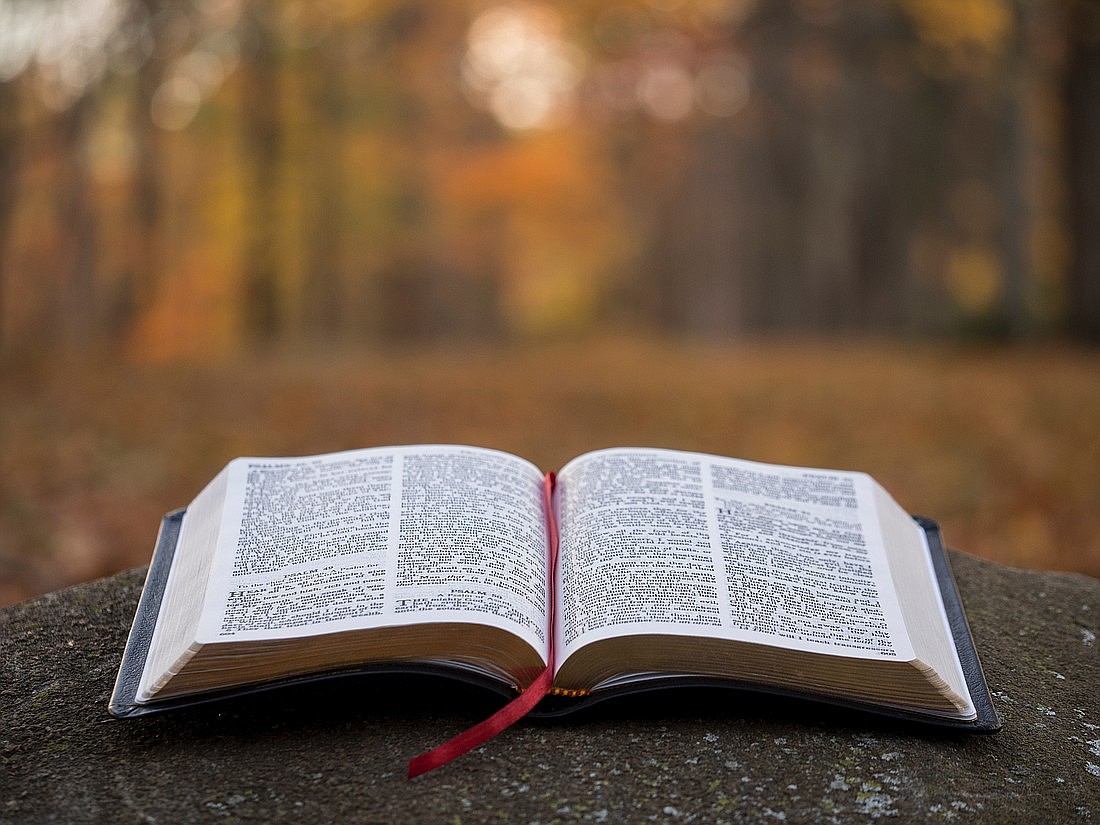July 31, 2024 at 8:56 a.m.
A lesson on the Bread of Life
This month at Holy Mass on Sundays, we will be reading from the Gospel of John. Normally, in the readings offered to us for our reflection in this current liturgical cycle (Year B), we have the opportunity to read from the Gospel of Mark. Maybe this “Bread of Life Discourse” from John is given to us because Mother Church feels we can never speak enough about the Eucharist! What a blessing, what a gift is the Eucharist in our lives! How often we fail to appreciate the gift and mystery that is presented to us daily in the miracle of the Mass!
“Be kind and compassionate to one another, forgiving each other, just as in Christ God forgave you.” — Ephesians 4:32
Over the next four weeks, in light of the Bread of Life discourse proclaimed as the Gospel at the Mass, I would like to take the opportunity to present a short catechesis on the doctrines of the Eucharist and how best we might learn to appreciate the Real Presence of Christ in our lives.
The Evangelist, John, places this selection firmly in the middle of the first part of his Gospel, what most scripture scholars call “the Book of Signs.” The signs performed by Jesus in the Johannine Gospels are cumulative; they build up, becoming greater and greater, from the first — the changing of water into wine at Cana — to the last and the greatest — the raising of Lazarus from the dead.
The signs also perform another function: All those who encounter the Lord Jesus are forced to make a choice. Either this man is divine and is the Lord, or He is absolutely mad and they should flee from Him at once!
Here He is, standing in front of them, saying, “Unless you eat my flesh and drink my blood, you cannot have life within you.” We, as Catholic Christians, hear that phrase and we can take comfort in it. We can bask in its beauty and revel in its richness, but objectively, it can sound pretty odd.
Imagine for a moment that you were one of the crowd. You never heard this man, Jesus, speak, but you came out to hear Him because of all the signs He had been performing. Perhaps, you think, He might perform one of these signs today, and you might be amazed. And here He is in front of you, the great teacher, the one some say might be the long-awaited Messiah, and He’s saying these things which some later in this sixth chapter of John’s Gospel will describe as “difficult things.”
Difficult things, indeed! “Eat my flesh, drink my blood if you wish to have my life in you.” What is He talking about? Is He speaking metaphorically? Surely, He doesn’t mean that literally, does He? What does He mean by this life that is within Him?
As we will find out, the Lord Jesus is not simply speaking symbolically. He’s not just using a figure of speech, an extended metaphor. What He is speaking of is the gift of the Eucharist, His true body, His true blood, poured out for you and me, for us and for our salvation.
I’d like to propose one question in light of this passage. When we’re faced with a difficult dogma or doctrine of the Church, how can we best try to understand it within the Church’s life? How can we learn more about what the Church really teaches, not simply what others say about it?
One way is to ask someone who ministers in faith formation — a priest, deacon, religious or lay minister — to direct us to the sources we need to learn more about the topic. Another sure way is the true gift that is the Catechism of the Catholic Church. This universal Catechism is available online at usccb.org and copies of this text are even found in bookstores. The U.S. Catholic Catechism for Adults, the American adaptation of the Universal Catechism, is also an amazing tool for growth and learning.
The key, I think at least, is to ask! We shouldn’t be afraid to find out what exactly is the Church’s teaching on scripture, faith and morals. When we find out, we need to try to make a mature, rational assent of faith to that teaching, if it is indeed a Magisterial teaching of the Church.
If we want to put out into the deep, we need to have an educated, informed clergy and laity, who know and who can express our Church’s teachings, even when they are, at times, difficult and complex. Theology is a sacred science, and we should, as believers, try our best to apply this study of our faith and religion in our daily lives.
- Tanzania’s Cardinal Pengo remembered as giant of faith, a ‘towering presence’ for Africa
- Bishops urge prudence, prayer, invoke Guadalupe’s protection as violence erupts in Mexico
- St. Francis’ relics open to public for first extended veneration in 800 years
- ‘We will grow in wisdom, holiness together,’ new bishop of Tucson, Ariz., tells faithful
- Pope renews ‘heartfelt appeal’ for ‘immediate ceasefire’ in Russia-Ukraine war
- Full text: Pope Leo XIV’s Angelus address given February 22, 2026
- God offers new possibilities, not prohibitions, with his invitation to love, pope says
- Find comfort, strength in Eucharist, pope tells attendees at LA Religious Education Congress
- Pope Leo XIV tells priests not to use AI to write homilies or seek ‘likes’ on TikTok
- Historical novel pitches Christian compassion against ideologies of hatred








Comments:
You must login to comment.